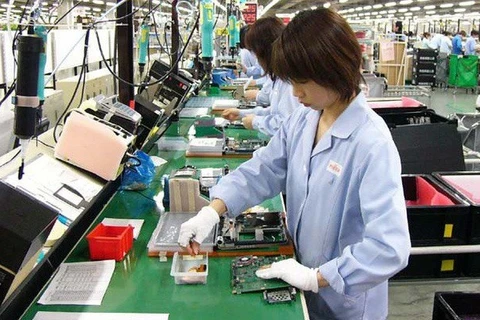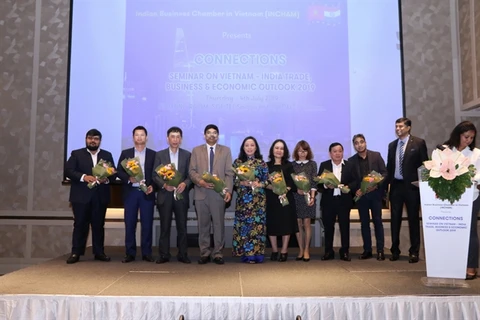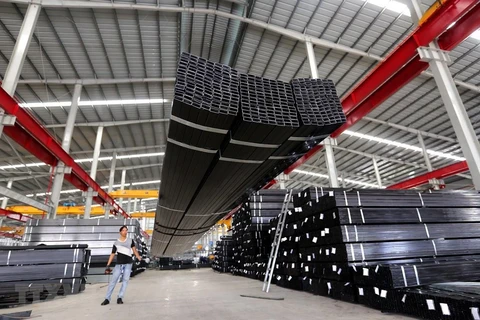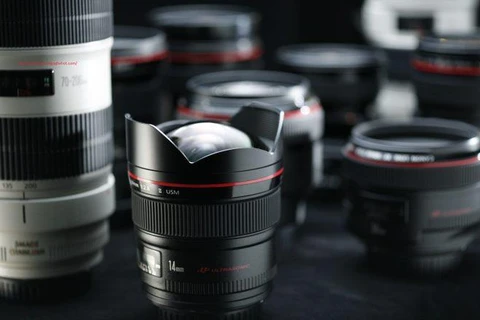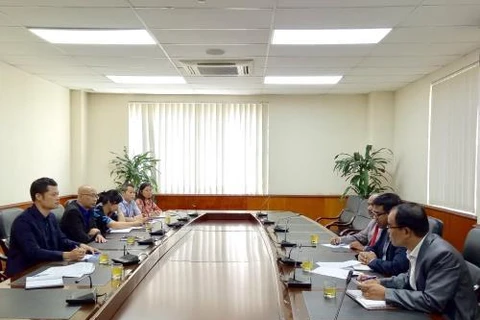 Vietnam ships about 10,000 – 12,000 tonnes of incense sticks worth 7 million USD to India each month, according to the Ministry of Industry and Trade (Photo: WTO and Integration Centre)
Vietnam ships about 10,000 – 12,000 tonnes of incense sticks worth 7 million USD to India each month, according to the Ministry of Industry and Trade (Photo: WTO and Integration Centre) Hanoi (VNA) – Businesses and State agencies met in Hanoi on September 16 to discuss measures in response to India’s recent restriction of incense stick imports, which is considered a serious trade barrier.
Tran Thanh Hai, Director of the Export-Import Department of the Ministry of Industry and Trade (MoIT), said the Indian Ministry of Commerce and Industry issued a notification on August 31 changing the incense import policy from free to restricted, requiring importers to ask for licenses for each batch of goods from an inter-ministry committee. The policy became effective right on the date of approval, with no license granting criteria enclosed.
As India is an irreplaceable market for incense sticks and similar products, this restriction has immediately caused stagnation in all production and trading of incense destined for India.
Nguyen Thi Thu Trang, Director of the WTO and Integration Centre of the Vietnam Chamber of Commerce and Industry (VCCI), said there are many signs indicating the restriction violates India’s commitments in international agreements.
There are about 100 businesses in the Vietnamese incense industry with about 25,000 workers, most of whom are from vulnerable groups like elderly or disabled people in rural areas. Therefore, supporting the industry is needed to not only “save” businesses but also assist the workers, she stressed.
Chairman of Truong Giang, an incense exporting firm, Vo Xuan Hoi proposed the Government ask India to suspend the restriction imposition to give Vietnamese firms time to re-arrange their goods and employees. The immediate enforcement of such a policy is unprecedented in the world, except for in the case of epidemics.
He called on the Indian government to re-consider the decision, adding that such regulatory barriers will greatly affect both Indian and Vietnamese businesses.
Trang said it will difficult to ask the Indian government to cancel a regulatory document, but the two countries’ governments should convene a working session soon to postpone the enforcement of the restriction and discuss the legality of the move.
According to Hai, erecting import barriers on some commodities is not a new issue, but the Indian policy has been applied immediately without any time for businesses to adapt or prepare.
India was unable to give any appropriate reasons for the restriction, he noted.
The official said in the current context, enterprises should connect with one another to share information and have a common voice to improve their associations’ operations. They also need to stay ready to deal with other countries’ trade barriers while promoting their competitiveness and diversifying markets.
He also suggested Vietnamese firms work with Indian importers, who have also been harmed, to demand their legitimate interests be protected. Meanwhile, the MoIT will work with the Ministry of Foreign Affairs to take more drastic actions.
Data of the MoIT shows that Vietnam ships about 10,000 – 12,000 tonnes of incense sticks worth 7 million USD to India each month.
India imported about 83.58 million USD worth of incense and similar products in the 2018-2019 fiscal year. It imports both finished products and materials from many countries, mainly Vietnam and China. The Vietnamese products make up 90 percent of India’s incense import revenue, according to the Indian Ministry of Commerce and Industry.
The import policy change by India is reportedly to defend its incense production industry, which is worth about 900 million USD, in the face of a surge in incense imports in recent years./.
VNA
